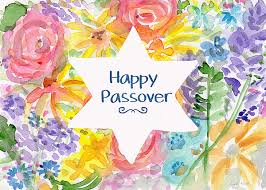Enduring Human Spirit and the Power of Hope
Passover is a significant cultural and historical observance that commemorates the redemption of a people from a period of bondage and oppression. It is a time marked by reflection, remembrance, and celebration, as communities come together to honor their heritage and the triumph of freedom over oppression.
At the heart of Passover lies a story of resilience and liberation, one that resonates with people of diverse backgrounds and beliefs. It serves as a reminder of the enduring human spirit and the power of hope in the face of adversity.
During Passover, families and communities gather for special meals known as Seders, where symbolic foods and rituals are used to retell the story of liberation. Central to the Passover narrative is the journey of a people from enslavement to freedom, a journey marked by hardship, perseverance,and ultimately, redemption.
Through the retelling of this ancient story, Passover invites reflection on the universal themes of justice, compassion, and the pursuit of freedom. It serves as a reminder of the importance of standing up against injustice and oppression, and of working together to create a more just and equitable world for all.
In addition to its historical significance, Passover is also a time for renewal and spiritual reflection. It provides an opportunity for individuals to examine their own lives and relationships, and to consider how they can contribute to the ongoing struggle for freedom and justice in their own communities and beyond.
Ultimately, Passover is a celebration of the human capacity for resilience, transformation, and renewal. It is a time to honor the past, embrace the present, and look forward to a future of hope and possibility. Whether celebrated within the context of a specific religious tradition or as a cultural observance, Passover serves as a powerful reminder of the enduring quest for freedom and redemption that unites us all.

Setting the table is an essential part of preparing for Passover and other important gatherings. It’s not just about arranging plates and utensils, it’s a symbolic act that helps create an atmosphere of warmth, hospitality, and reverence for the occasion.
For Passover Seders, in particular, setting the table takes on added significance. Each element of the setting carries symbolic meaning, from the ceremonial foods to the placement of the utensils. The Seder plate, with its array of symbolic foods representing different aspects of the Passover story, serves as the focal point of the table. In addition to its symbolic importance, setting the table for Passover is a practical matter as well. A well-set table ensures that guests feel welcomed and comfortable, and that the meal can proceed smoothly without any last-minute scrambling for utensils or condiments. It also adds to the overall aesthetic of the gathering, enhancing the sense of occasion and making the meal feel special and memorable.
At Dishfunctional, we understand the importance of setting the table just right for your celebrations. If you need anything to complete your table, whether it’s special dinnerware, decorative accents, or serving utensils, please don’t hesitate to let us know. We’re here to help make your gatherings as meaningful and enjoyable as possible.
The first Passover occurred on Nisan 15. This year, it is observed on Monday, April 22
